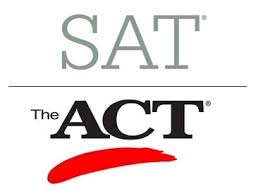
I’ve had many parents and students contact me recently, seeking advice about standardized testing strategies in this uncertain time. My advice for upcoming juniors: prepare for the PSAT, ACT, and SAT over the summer, before the stress of a busy junior year. There is a great deal of overlap in these three tests, so preparing for one translates to all.
One note about preparing for the PSAT: many college counselors advise students not to prepare for the PSAT. After all, it seems silly to practice for a “practice” test. But students often score poorly when they go into the PSAT cold, which can lead to a generally negative, demoralized attitude towards these exams. Also, the PSAT is the roadmap to National Merit Scholarships, so doing your best can literally result in tens of thousands of dollars in scholarships. So my advice to students is to prepare yourself for the PSAT. You will score higher, have fewer mistakes/areas of weakness to focus on, and have more confidence heading into the SAT and/or ACT.
The PSAT can qualify you for merit scholarships, but it is also a great opportunity to practice for the SAT and ACT. My advice is to treat these exams like a game, challenge, or brain teaser. Some of the questions are trying to trick you, and you are trying not to fall for their tricks. WIth every mistake on a practice test, ask yourself “How was I tricked?” Learn from that! Keep in mind that often just one additional question answered correctly on the SAT increases a student’s score 10 points, and 1 point on the ACT! Students and parents are often surprised to hear this, and having this knowledge increases a student’s confidence that they can significantly improve their score.
Two to three hours per week is an appropriate amount of time for a student to spend over the summer preparing for these exams. Remember that we tend to learn best in smaller doses over a longer period (so don’t wait to cram during the last two weeks before the exam.) In addition to leading to higher test scores, spending two to three hours per week preparing for the ACT and SAT will limit summer learning loss and help a student have a more successful junior year. Also, two to three hours per week of test prep leaves plenty of time for students to pursue the other goals of a productive, well-balanced summer.
My advice as far as which ACT and SAT exams to take in a student’s Junior year revolves around the College Board’s Question and Answer Service (QAS) and the ACT’s Test Information Release (TIR) Service. It saddens me how few families are aware of these services. For an additional $18 on the SAT and $22 on the ACT, the College Board or ACT will send the student a full breakdown of which questions were answered incorrectly and what the correct answers were. It’s the best way to increase your score on your next attempt. Imagine taking a four hour test, getting a score you are not completely satisfied with, not being told what you did wrong and then being told to take the exam again. That’s absurd! It makes more sense to review/learn from your mistakes before you take an exam for a second time. CAP provides this service with all practice tests, and we encourage you to take advantage of it on the official tests as well.
The College Board offers QAS on the March, May, and October SATs and the ACT offers their TIR service on the December, April, and June ACTs. Therefore, I recommend that students take the June ACT before their Junior year, as a “practice” and also to get feedback on their weaknesses with the TIR service. Then they can take the PSAT at school, and the December ACT as their first “real” attempt, also with the TIR Service. I also recommend that 11th graders take the March SAT so they can order the QAS Service. Once a student has taken each test, use the official ACT/SAT concordance tables to determine the test on which the student scored higher and focus on that test going forward. Many students score about the same on the two exams, which is not surprising since there is so much overlap in the content of the two tests. In this case, the student should retake whichever test they felt more comfortable with. While the ACT is more common here in the South, colleges will accept either score.
A logical next attempt for the ACT would be April (TIR is offered again) or May for the SAT (QAS is offered again.) The goal is for this test to be the final time they need to take these exams. These are long, grueling exams that nobody wants to take more times than they need to. Of course, a student can always take the SAT or ACT an additional time if need be.
CAP offers test analysis and test prep as part of all packages. Contact us to learn more.

Recent Comments